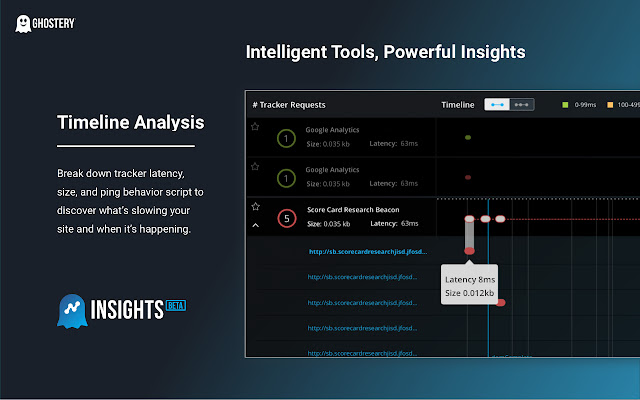
The Pros and Cons of Funded Trading: Is It Your Next Step in the Financial World?
Imagine this: youre passionate about trading, eyeing the markets—stocks, forex, crypto, commodities—and dreaming of turning those gut instincts into steady income. But theres a hurdle—capital to trade at a larger scale. Funded trading programs have emerged as a game-changer, offering a way for traders to access bigger funds without risking their own. But is it truly the golden ticket or just another gamble? Let’s dive into the real deal behind funded trading, peeling back the layers of its advantages, pitfalls, and what the future holds.
The Power Play of Functionality in Funded Trading
Funded trading isn’t just about getting access to cash—it rewires the entire trading experience. Instead of risking your savings, you trade with a companys capital, which can amplify your potential gains without the same personal risk. Imagine a trader with a knack for crypto or indices getting a shot at scaling up their strategies without the worry of losing their house if things go sideways. It’s a vibrant junction of opportunity and risk management, turning individual skill into a shared success story.
In practice, many prop trading firms use evaluations to find traders with strong discipline and proven strategies. Once you pass their vetting, you’re granted a funded account—sometimes starting at a hefty $50,000, but with rules to follow. For some traders, that’s a license to dream bigger, to refine their craft with institutional backing.
The Bright Side: Advantages That Make Funded Trading Attractive
1. Capital Access Without Personal Risk
The biggest draw? No need to max out your credit cards or dip into your savings. If you’ve developed a reliable system, this allows you to operate on a much larger scale than you could solo, potentially boosting your returns exponentially.
2. Risk Management Focus
Most funded programs emphasize strict risk parameters—stop-loss limits, daily drawdowns—which is a great training ground for disciplined trading. With the right mindset, it’s an environment that pushes you to think beyond the trade and hone your overall risk strategy.
3. Learning and Growth Opportunities
Several prop firms provide resources—coaching, analytics tools, and mentorship. Trading with a funded account often exposes you to diverse assets: from forex and stocks to options and commodities, broadening your expertise and adapting to fluctuating market conditions.
4. Entry into Professional Markets
Getting into funded trading can serve as a stepping stone—think of it as a transition from hobbyist to professional trader. Its a platform where your skills are curated and validated, opening doors to industry acknowledgment, better job prospects in financial services, or even setting up your own firm later.
The Flip Side: Hidden Challenges and Cautionary Tales
1. Strict Rules and Constraints
A double-edged sword? Absolutely. Many programs impose daily, weekly, and overall drawdown limits, plus rules about maximum position sizes. Break one, and your funded account can be revoked. It requires a high level of discipline; it’s not just about making money—it’s about playing by a set of demanding rules.
2. Performance Pressure
Trading with someone else’s money—no matter how generous—adds a layer of psychological pressure. You’re not just managing personal risk, but also adhering to strict performance metrics. This can lead to stress, especially if markets turn against your assumptions.
3. Limited Control Over Strategy
Some programs restrict certain trading styles or asset classes. For example, day trading might be frowned upon in certain funded schemes, or high-frequency strategies might be off-limits. Traders need to adapt their approach to meet program standards—an adjustment that can be frustrating for purists.
4. Dependence on Program Longevity
The success of funded trading often hinges on the stability of the firm. If a company goes under or shifts policies, traders might find themselves suddenly without a platform. Its a reminder that, like any venture, diversification and personal growth should parallel funded programs.
The Industry’s Map to the Future: Trends and Transformations
The trading landscape isn’t static. Decentralized Finance (DeFi) and the rise of smart contracts challenge traditional models, offering peer-to-peer trading platforms that eliminate middlemen. Yet, these innovations aren’t without hurdles—security vulnerabilities, regulatory shifts, and technological barriers.
Meanwhile, the horizon looks increasingly automated, with AI-driven trading algorithms becoming more sophisticated. Imagine a trader blending human intuition with AI support—spotting opportunities in real-time across multiple assets, from forex to crypto. Prop trading firms are experimenting with integrating these tools, and the results could redefine how traders operate.
As the world moves toward decentralized, transparent systems powered by blockchain and AI, prop trading stands on the cusp of evolution. Smart contracts could automate compliance, risk management, and profit sharing—making funded programs more flexible, efficient, and accessible.
Final Thoughts: Is Funded Trading Your Path?
Diving into funded trading can be a game-changer—or a challenging maze. It offers a way to amplify your strategies, learn from industry standards, and access big market opportunities without risking your personal capital. But—be aware of the rules, stay disciplined, and treat it as a part of your broader growth plan.
Looking ahead, with technological innovations and decentralized systems on the horizon, funded trading—when approached wisely—can be a launchpad. It’s not just about making money; its about building resilience, sharpening skills, and riding the waves of change in a transforming financial world.
Funded trading: Leverage opportunity, manage risk, and shape your financial future.

